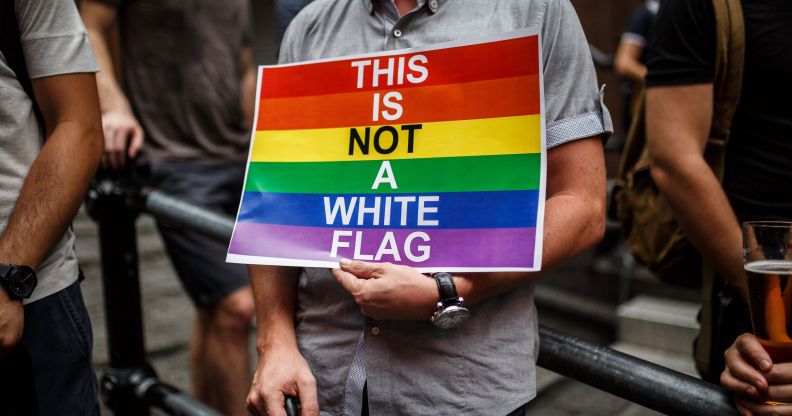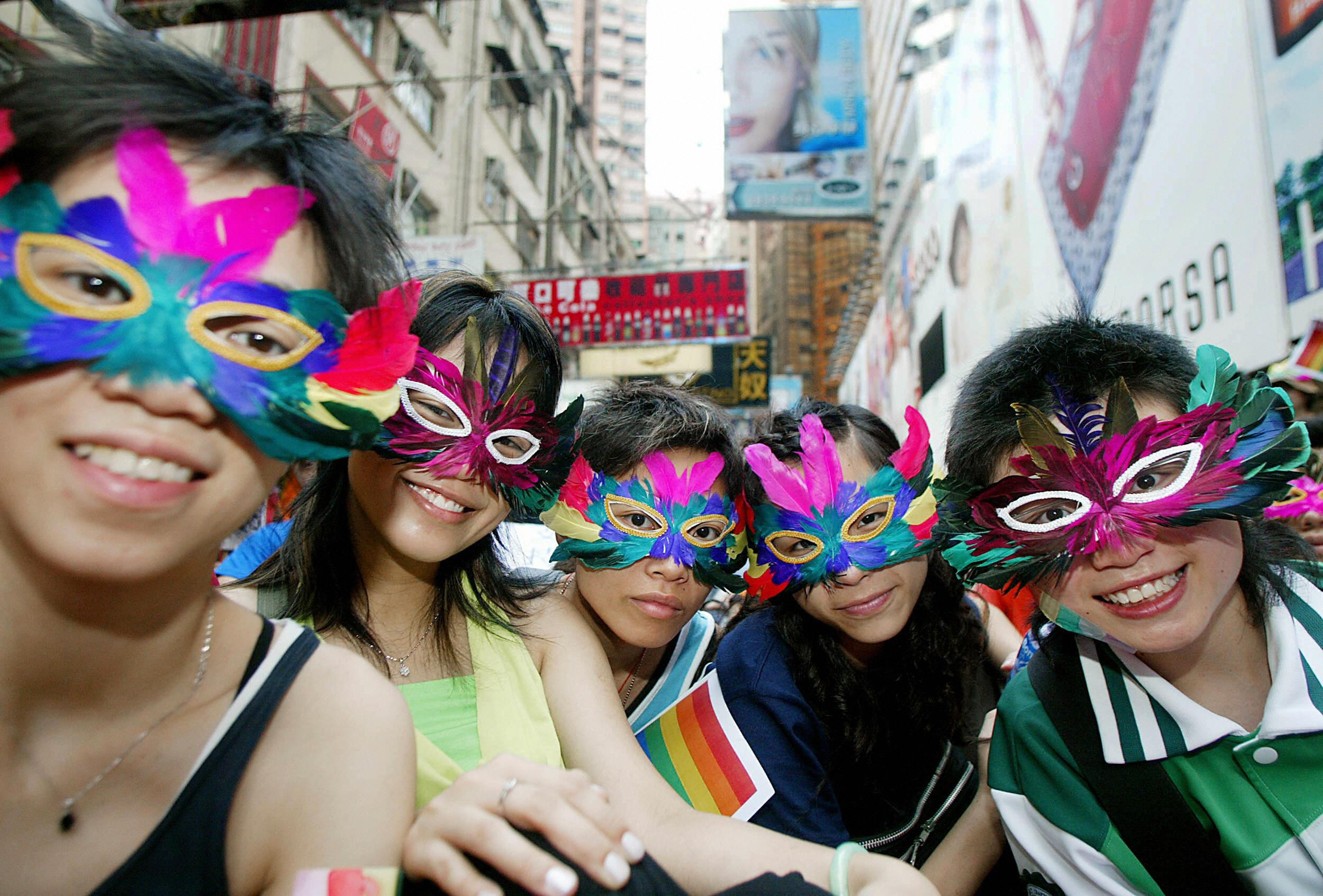Hong Kong queer community banned by police from marching during Pride amidst violent protests in the city

The queer community was told by Hong Kong police they will not be allowed to march in a Pride parade. (ANTHONY WALLACE/AFP via Getty)
The queer community was told by Hong Kong police they will not be allowed to march in a Pride parade. (ANTHONY WALLACE/AFP via Getty)
For the first time, the LGBT+ community in Hong Kong has been banned by police from marching in its annual Pride parade amidst violent protests in the city.
According to South China Morning Post, organisers of the march were told that the event on Saturday November 16 would be reduced to a standstill gathering.
Director of the parade’s organising committee, Yeo Wai-wai, said the police had informed them just 48 hours before the event, rather than the usual month in advance, so they were left with little time to inform guests.
The police cited disruption in other areas amidst violent protests against the now withdrawn 2019 Hong Kong extradition bill as the cause of the ban.
Yeo Wai-wai said: “The police have been clamping down on freedom. Sexual minorities are no exception.”
She added the annual event, which has been running since 2008, has never before faced a ban by police because it is known for being peaceful and inclusive. The only time the march has not taken place since its inception was in 2010 because of a lack of resources.
The government has also imposed a mask ban to deter violent protesters, but this could discourage people joining the Pride event as LGBT+ people who have not come out to their family and friends often wear masks to protect their identities.

LGBT+ activists wearing masks attend a gathering and march in the Causeway Bay district of Hong Kong in 2005. (TED ALJIBE/AFP via Getty)
The parade regularly includes lawmakers and diplomats, and Yeo Wai-wai said: “There is a chance that they could not make it because of such a late confirmation.”
Hong Kong’s only openly gay lawmaker Raymond Chan Chi-chuen said that a Pride march has nothing to do with the current political unrest.
He added: “Does that mean the city will no longer have any marches now?”
In October, a Hong Kong court turned down a judicial challenge against a government policy which denies civil partnerships to same-sex couples.
Amnesty International Hong Kong described the court’s ruling as “a bitter blow” to Hong Kong’s LGBT+ community, who had hoped the city would follow the lead of Taiwan, which recently became the first country in Asia to legalise same-sex marriage.

